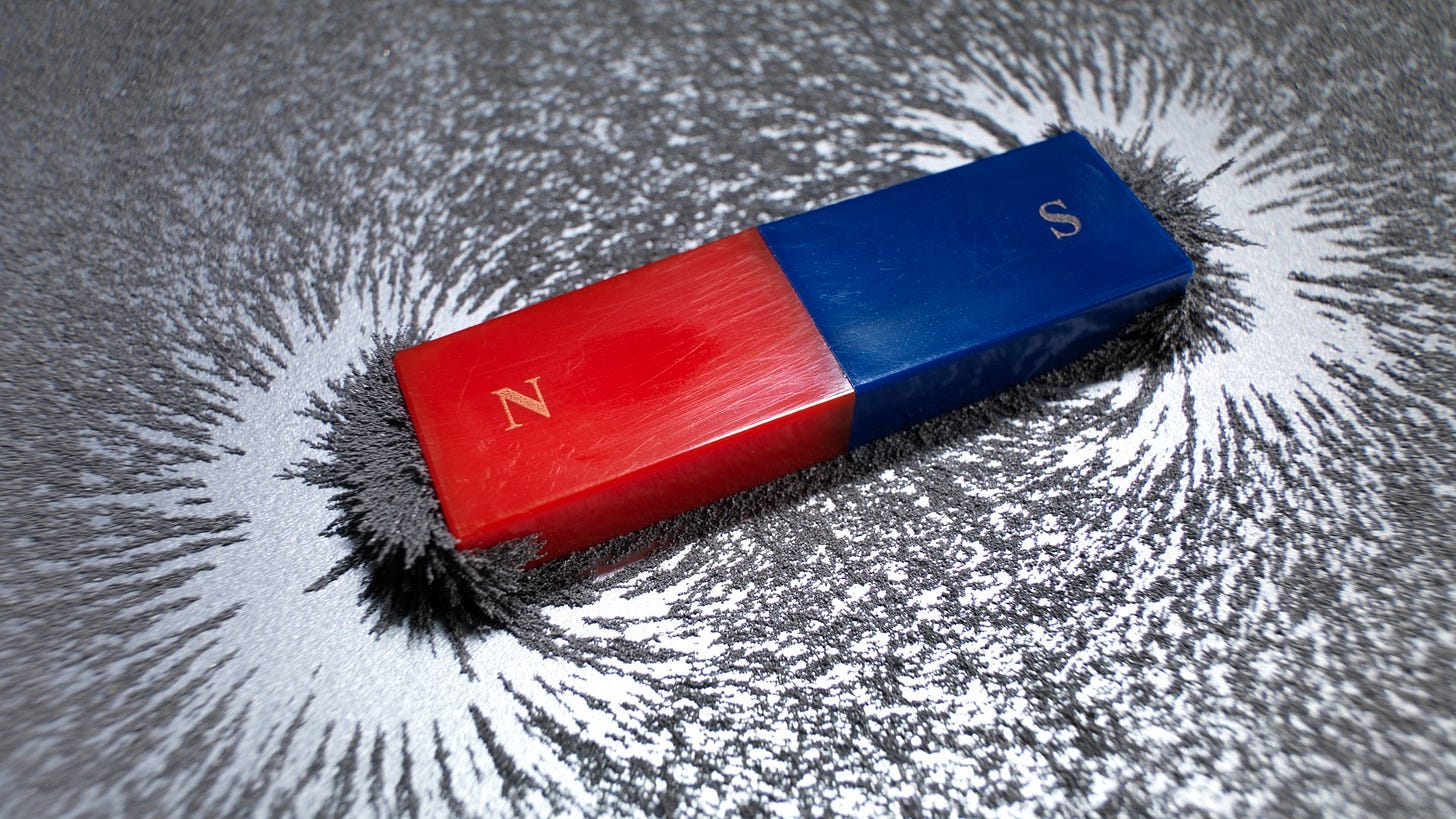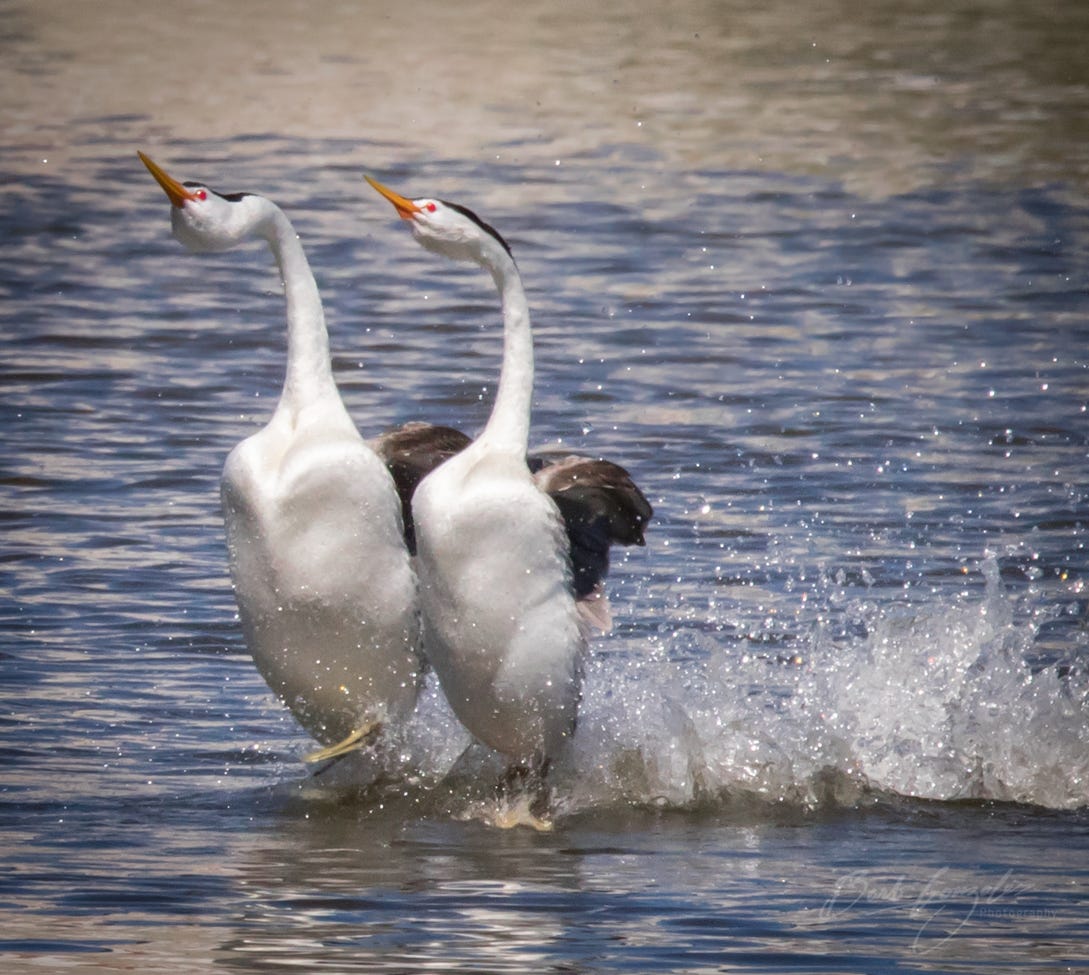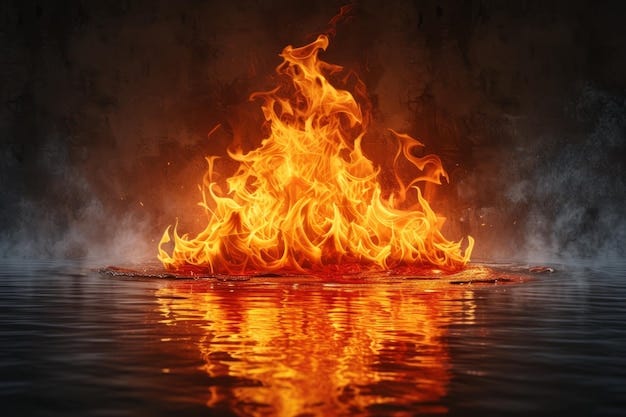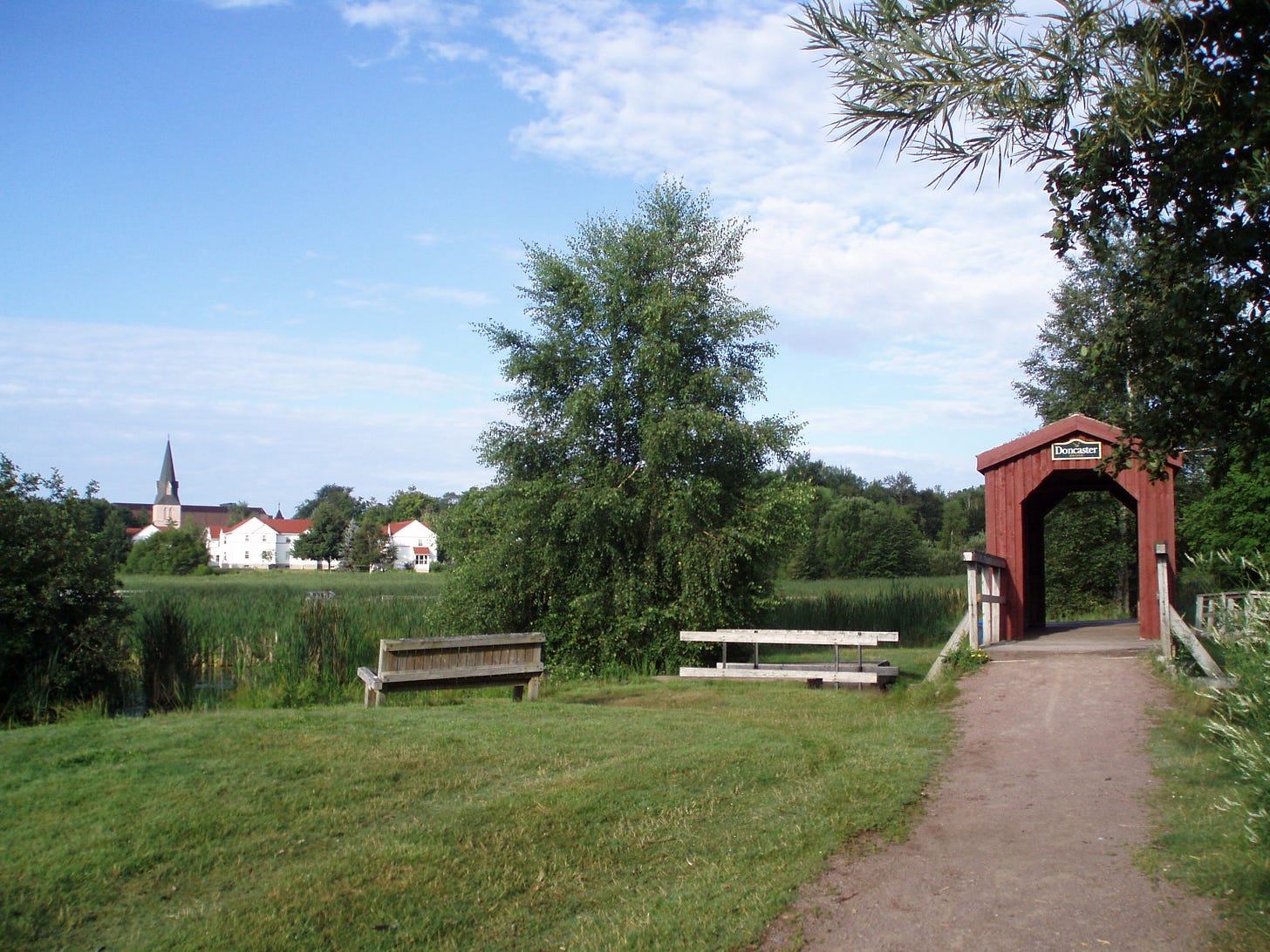No matter how private or personal, trauma cannot belong solely to a family, or even to that family’s intricate ancestral tree. The consequences of trauma seep across communities, regions, lands, and nations.
Thomas Hübl, Healing Collective Trauma
Seeking answers to the questions: how long do memories of trauma travel down the generations? How do they show up even when they aren’t talked about directly?
thepleasantdream.com
I keep coming across statements that say Acadians are invisible. That the more dominant cultures of Canada and the U.S. exclude our stories from history, sociology, everyday discourse.
And, yet, every time I turn around (metaphorically), it seems I’m bumping into a fellow Acadian, a cousin with whom I can trace genealogy to our shared ancestors. On Facebook. In Substack. On Etsy. In a chat room of an online writer’s workshop. On a park bench or a retreat center deck while I’m writing in a journal minding my own business.
It’s like there’s an ethereal transgenerational magnet out there gathering iron-filing descendants.
livescience.com
One discovered cousin — Ian, who’s retired to a cottage in Wales — calls it cousinage.
The first known use of the word was in the 14th century. In modern written English, its frequency of use is .01 in a million — that’s 1 in every 100 million words. That feels like the right word choice for an invisible people with a long history.
sandiegobirdspot.com
I come to the revelation of a specific cousinage through what looks to me like a human (platonic) version of the western grebe mating dance. It begins with a simple hello, erupts into an enthusiasm of flying words, and settles with joy.
Is this one answer to the question of how long does something travel through the generations? After 269 years, we’re still looking for family members? And erupting with joy at each discovery — as if we’ve found the Lost Treasure of Oak Island?
This behavior could be a lemonade made from squeezing the lemons of traumatic separation (see The trauma of the expulsion of Acadians, part 2).
And then I wonder: How much of what we call culture is a resilient response to trauma and its unbearable losses?
This is the sort of thinking that drives my siblings nuts — and has since we were kids in the so-long-ago. I can see the eye rolls, the stunned looks, the comments: you know most people don’t think of these things, right? They’re more interested in what’s going on today.
True. Yet, here we are again.
Transgenerational transmission without awareness can show up in behaviors, fears, and assumptions both individually and familially. Changes to body biology — epigenetics — can show up generations after a primary trauma.
We know about big, adverse, behavioral and emotional responses to unresolved trauma — alcoholism, domestic violence, depression, high anxiety, perpetration of trauma on others. Those get talked about. Those lemons have a chance to have the juice wrung from them.
But what about more subtle, unquestioned, maybe benign, maybe not benign ways in which we adapt to hidden ancestral trauma?
freepik.com
I think of my childhood irrational fear of fire and water.
My mother took aside my 7 year-old self and insisted I learn to light a match. I have no idea why she thought this was a necessity, but I stood in her kitchen and went through a matchbook.
Same with water. Swimming lessons for 5 year-olds were a rite of passage at a community pond in our town. The first step was to put one’s face in the water and blow bubbles. My terrified screams were enough to wake the dead.
I wonder: Are memories of burnt homes and drownings somehow encoded in my genes?
wccftech.com
I think of the invisibility cloak worn by Acadian culture.
In a Wikipedia entry about Oak Island (Nova Scotia), Templars, Masons, Incas (?!), Spanish conquistadores, and pirates are mentioned. But not one hypothesis about Acadians or Mi’kmaq. As close as the article comes is the idea that the French Army might have buried the treasury of Fortress Louisbourg there during the Seven Years’ War.
What’s it say that, even in a host of wild and offbeat ideas, and all these possible odd ducks sailing in and out of the Oak Island area, no one mentions Acadians or Mi’kmaq?
I also think about Mr. Leblanc — a discovered Acadian cousin I once met at Sackville Waterfowl Park (NB).
I was sitting on a riverside bench writing in my journal when he started a conversation about geese. They were new to the park, he said, there just the past two years. He worried they might be hit by traffic on the nearby Trans-Canada highway.
photo by Ann G. Forcier
“I haven’t seen any geese,” I said, “but I did see a little bird with a big mouth.”
“Sounds like my wife,” he said, a twinkle in his eye.
His story unfolded slowly. The wife persuaded a veterinarian to come to the community. Then, he said — was it shyly or apologetically? — he was French.
“Moi aussi!! J’suis Française!”
“T’ parle français?”
“Un peu.”
“I’ll talk with you in English then.”
Oh, my, but his wife was (is?) a force of nature. The vet supposedly yelled at her once. To which she replied, “Don’t yell at me you French bitch.”
I’m stunned. Here in 21st century Canada, “French” is part of the slur?
Sounded like the vet was surprised, too. “You married a Frenchman!” was the purported reply.
Looking at this now, I have more questions.
What if I had to deal with that daily, the accommodation to less-than because of an ethnic minority status? That would be a chronic stress, n’est-ce-pas? Something that becomes an accumulated trauma because it is like “death by a thousand slices”?
Isn’t this a kin feeling to what the ancestors — deported, migrated to Quebec, hiding with Mi’kmaq kin, fighting back — would have felt from those who wanted them out of Nova Scotia because they were French Catholics? And kin to what their descendants would feel today in areas where “French” is considered less-than?
How did Mr. Leblanc manage to love, marry, and live with someone who carried that attitude about his heritage, and so, him? Did she even know she was doing that? Did he? Did it matter to either one of them, or was it something they both took for granted?
Had they made lemonade of ‘otherness’ or was Mr. Leblanc doing the best he could to carry around a very old lemon?
Maybe part of the issue is that, while our stories are excluded from the main Canadian and US cultures, they are also excluded from our families and ourselves. Maybe we take for granted behaviors and beliefs that ought to raise questions.
hobbiesinharmony.com
I think about my great-niece Katelyn. She’s starting to take a deeper interest in family history. In her teens, she’d asked her father about his French heritage because of what she’d learned in school.
Katelyn: Most of what I had learned in school or on social media described the French (all throughout history) as weak/timid. Napoleon was the exception, of course, but even that didn’t count to me because it was described as one powerful man rather than a powerful country. I was only ever taught about France’s losses and failures - their defeat in the French & Indian War and their capture in WWII, specifically. Although, I did learn more about their contributions to the Allied victory in WW1 after Dad and I had that conversation.
Still, I don’t know much about France’s history in general (which is unfortunate because I would like to be more connected to my heritage), mostly because I would have to do that research in my free time.
Auntie Annie: Oh, no, my darling. The research is done. Point me in the direction of what you want to know. You don’t know about your Canadian roots?
Katelyn: Yes, even with my 23&Me test, I only got approximate locations in France that my ancestors lived - nothing about Canada - so I never learned where we came from or why. I had honestly just assumed that French-Canadians were one big monolith with no subgroups, and that most of them just trickled into New England. I had no idea there was so much I didn’t know! Thank you for the list of people we’re descended from, too! That’s really interesting and I’ll be looking into them now because I’m curious. I appreciate the information!
Without shared family and heritage stories, Katelyn inherited lemons. In the 21st century U.S., she’d learned to feel less-than about her ethnicity.
Telling and hearing her ancestral stories will make lemonade from that lemon of feeling less-than.
Some stories curated through a new lens emerge at the unsqueezed lemon stage. Such is the case with The Acadian Expulsion Memorial List.
Take a look at what genealogist Nicole Gallant-Nunes recently released to raise awareness among us and to remember our relatives who died during the Expulsion.
Though I knew that “thousands died” during the Upheaval, the numbers kept the reality of that experience distant from my feelings. When I looked at Nicole’s list, when I said aloud some of the names, I felt the loss. Each one, as Nicole says, was loved by someone.
They say you die twice. One time when you stop breathing and a second time, a bit later on, when somebody says your name for the last time. — Banksy
Say their names.
Resources
Recent remembrances for Acadians
Dec. 8, 2024, unveiling of Acadian Odyssey monument in Annapolis
Location of other Acadian Odyssey monuments
Some things people are doing to remember others:
Bryan Stevenson Freedom Monument Sculpture Park
Stolpersteine Holocaust
Hibakusha Stories (2024 Nobel Peace Prize)











Loved the idea of cousinage. And epigenetics is fascinating--the idea that emotional scars of our ancestors can be inherited. Xoxo
Nice Ann! 😊